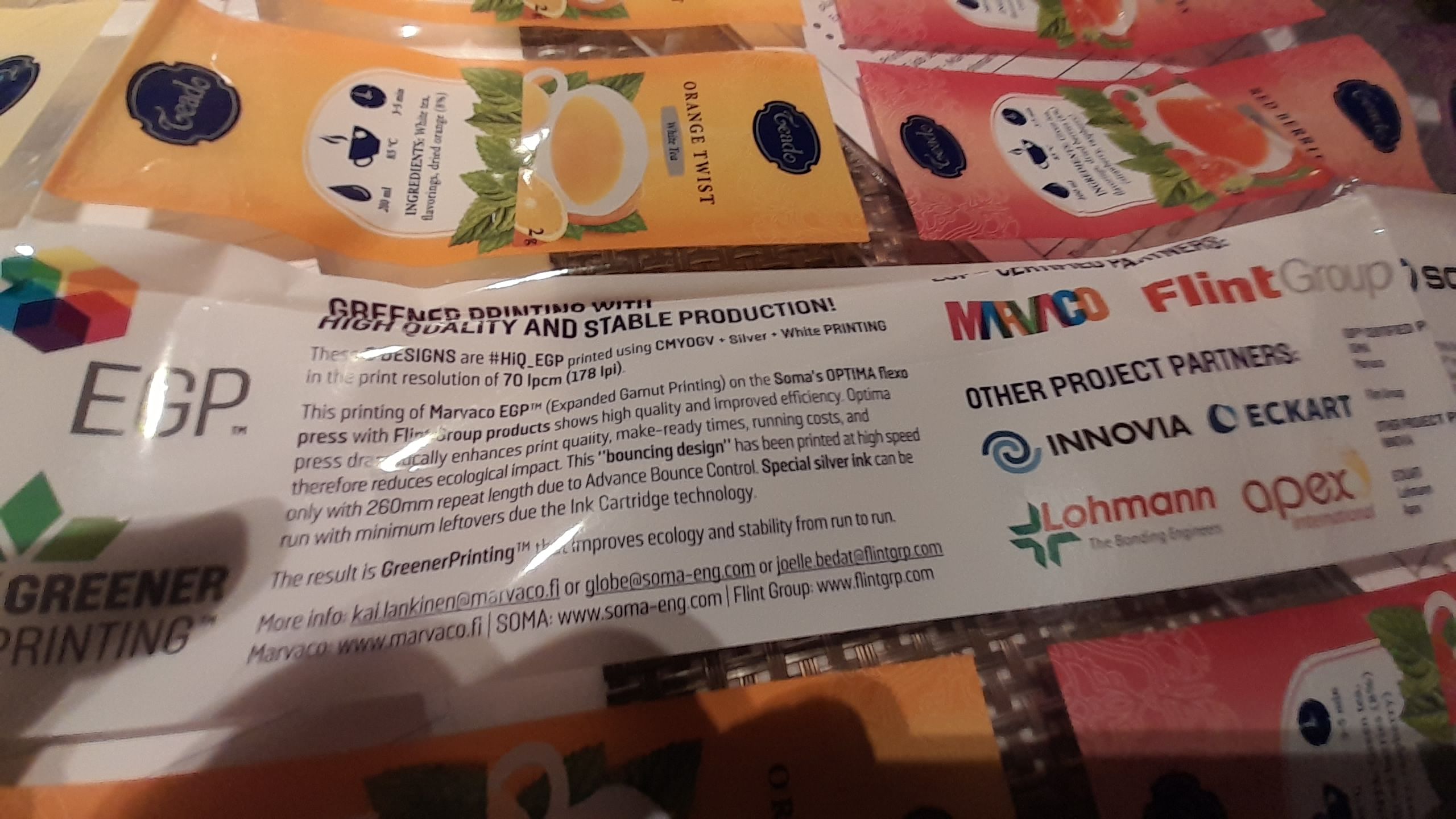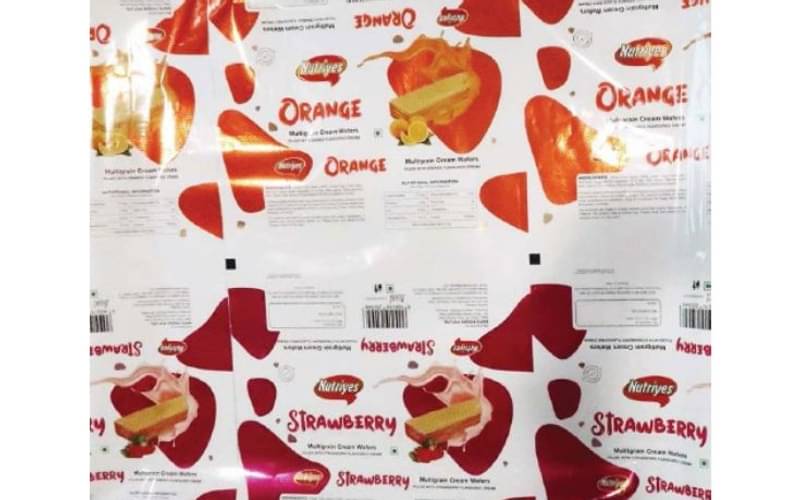Multiflex and Veepee produce the finest prints on CI flexo, says Jai Chandra
Jai Chandra of Veepee believes that understanding the concept of colour management and press standardisation and also religiously following it is the only way to success for any converter in this industry. He describes how the fingerprint at Multifex was done. He says, "The print specifications with reference of the ink densities, Lab values and the dot gains were determined. Based on the standardisation process agreed upon by both Veepee and Multiflex, the press profiles were created"
07 Nov 2023 | By Abhay Avadhani
Multiflex is one of the early adopters of flexographic technology. The Multiflex team has over 15 years of experience in flexible packaging on CI flexo. Being a process driven company, it was an easy task for our team at Veepee Graphics to implement colour management and press standardisation at their facility. This was in 2005.
The Multiflex team is very forthcoming to implement any new technical advancements. This matched with our tech-ethos. Veepee has always been a trendsetter when it comes to adopting the latest technology, Hybrid screening is one of the technologies which we have been working on. Over the years both the companies have learnt the nuances of this process to perfection. And today as partners we produce one of the finest prints on CI flexo in India.
Hybrid is a digitally modulated FM screening which can reproduce close to continuous tone print quality as the dots are too small to be seen by the naked eye. And yet it can be printed without any changes on the press parameters. As there are no angles, moire is avoided. Also, the screening is forgiving to the normal register shift on the press making it possible to print text and vector images in multicolour. With this screening technology, it is easy to implement ECG and fixed pallet printing which is the future of any printing process. The reduction in the number of plates, lower washup and setup time on the press, no press return inks, makes this process cost effective and sustainable.
Fingerprinting: The key to Multiflex's success
Fingerprinting and standardisation of the press is essential to reproduce a predictable job in flexographic printing. It is our company policy not to execute jobs without following this process. GMG is a popular colour management solution and accepted by most of the brand managers across the globe. The ease of operation and accuracy of the profile are the key reasons for us to implement this technology in our workflow.
Multiflex has a solid, well-managed, system-driven workflow. As a result, there are no compromises when it comes to standardisation. The fingerprint is done every six months or when there is a change in any of the press parameters.
Colour charts are customised-based on the size of the press, anilox library and the screening technology. I oversee the entire process and create the profiles. It is quite a challenging task to do it at every customer site but I enjoy doing it. As I am involved in the entire exercise, there are little chances for iteration of the profile unless and until there are changes in the press parameters post the fingerprinting process.
Once the base profile is created, we have the expertise to modify the same if there are minor changes in the ink, press and substrate parameters. We need not go through the whole process again. A good understanding of the colour management process is crucial for this.
When it calls for standardisation of a CI press, we would recommend having separate profiles for surface and reverse print if the delta in the colour space is wide. There is no need to have multiple profiles unless the base colour of the substrates or the white ink vary.
As we work on a closed loop colour management system what we see on the monitor matches the digital proof as well as the machine print once a profile is created. Visual approvals are on a D50 light booth.
The choice of plate depends on the type of job, for our hybrid screening. We have standardised MacDermid, as the plate can anchor very fine dots and also the “clean print technology” has lesser ink buildup on the plate. This avoids frequent press stoppage for cleaning.
By adopting the latest hybrid screening technology, we are able to overcome the barrier of printing high screening rulings in flexo which traditionally is limited to 133 to a maximum of 150 LPI. The latest screening can reproduce dots close to 250 LPI as compared to conventional screening, without any change in the existing printing condition.

Jai Chandra: The print specifications with reference of the ink densities, Lab values and the dot gains were determined
Veepee's ECG implementation
Veepee has successfully implemented the Extended Colour Gamut (ECG). ECG can be implemented in two ways; one is by introducing OGV into a CMYK image to achieve the gamut which is beyond the colour spectrum of process colours, thereby making the image vibrant.
ECG can be a successful technology, if we can do fixed pallet printing. This means the inks set of CMYKOGV and the anilox will be constant. The only variable will be the plates.
By implementing this, we can achieve 90% of the Pantone shades which will be a huge saving for the converter because of faster changeovers, no additional cost for pantone inks, cost of press return inks and reduced press set up time. If this technology can be implemented, then digital flexo which doing the rounds in the industry will be a reality.
Flexo is science
Gone are the days where printing was an art. In 2023, we print by numbers. With a 5x5mm swatch of 100% solid and 50% screen we can reproduce the desired results by matching the density, Lab value and the dot gain to the fingerprint standard. This saves a lot of time, money and energy to achieve the target consistently. Today with all the price pressure what you save is what you earn!
No press or printer can print without certain tolerance. This has to be approved by the brand. The extent of deviation is subjective and has to be mutually agreed by the converter and the brand owner. Nevertheless, following the set standards and having systems and processes in place will make this an easy task.
Every printing process has its limitations. Though flexographic printing is a versatile process, it has its own challenges. Register tolerance, achieving fade to zero vignettes especially if the graphics are combined with solid prints, reproducing high ink densities with very fine graphics on the same plate, printing very small text, either direct or reverse are few of the common challenges. If these concerns are addressed at the design stage itself by engaging the converter and the trade shop, life will be easy for everyone once the job is in the press. Compromises at the artwork level is better than making changes during printing to achieve the results.
As part of our regular upgrade of technology we have installed the XPS at our Bengaluru location. Till recently this was available only at our Pune plant. The Hyderabad facility is rather self-sufficient (much faster than expected). Veepee Graphics finalised the acquisition of two XPS Crystal systems (LED UV exposure) and an additional CDI 4260 and CDI 4836 (digital flexo CTP imager) at LabelExpo Europe 2023. This investment in Esko technology during the Labelexpo Brussels will be part of the technology upgradation in Sri Lanka as well for our new facility which will be announced shortly. With the latest machinery deal, Veepee becomes the only trade shop in the world to have four XPS.
Veepee is Sedex and Disney certified. This has made our facility not only a safe workplace but also has changed our work culture. We are proud to have a world class facility.


